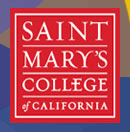Pedagogy of Immersion
Introduction
Welcome to this second volume of EPiCHE, featuring a thematic issue focusing on immersion as a form of engaged pedagogy. While the pedagogy of immersion may have emerged in language education, immersion is now a common practice in community service, service-learning, and what is broadly referred to as community engagement.
Immersions are frequently characterized as intensive educational experiences in a specific setting over a concentrated period of time ranging from one week to a semester or a full academic year in local, domestic, or international settings. As the name implies, the experience is all-encompassing as students (and often their facilitators and faculty) often live in a community setting to gain a sense of place as they learn and work. Despite the pedagogical potential, immersion experiences can also present a number of paradoxical challenges such as perpetuating and exacerbating power and privilege. The authors of this issue’s articles provide thoughtful insight to both the power and peril of immersion experiences.
This thematic issue of EPiCHE is unique in two ways. First and foremost, the voices of the authors are not constrained by traditional academic writing. In this issue readers will be introduced to wisdom that comes from scholarly sources, faculty experience, and community leadership. Authors include faculty, mission and ministry professionals and a community activist. This type of writing is what Nash calls “scholarly personal narrative,” because it acknowledges the power of personal experience in research to identify, explicate, and advance ideas.
The second unique feature of this edition of EPiCHE is that all of the contributors are from a single institution: the University of San Diego, a Catholic Liberal Arts institution with a long history of community engagement. The contributors to this issue invested over one year collectively and individually reflecting on their lived experiences immersion, emergent theories about immersion, and the pedagogical implications. This University of San Diego reflecting-and-writing collective offers an immersive context for the topic of immersion.
The first article, “Engaged Pedagogy: Reflections from a Barriologist,” was written by Rigoberto Reyes, who has been an activist and community organizer for 40 years. The essay offers advice to university faculty and administrators on how best to implement community engagement pedagogy and partnerships that start with community development goals.
In “Reflections on Skipping Stones to Diving Deep: The Process of Immersion as a Practice,” Judith Liu, Ph.D. revisits the experience of teaching community engagement courses over the course of 30 years. She shares her personal journey through voluntarism to service-learning to immersion experiences as a critical pedagogical practice.
The third article, “The Spirituality of Immersion: Solidarity, Compassion, and Relationship,” was written by Michael Lovette-Colyer. This personal narrative of his experiences presents a theological exploration of the ways immersion experiences revolve around the three dynamics of solidarity, compassion, and relationships.
Kevin Guerrieri and Sandra Sgoutas-Emch’s offering, “Immersions in Global Equity and Social Justice,” poses a number of provocative questions coupled with a proposed model of change. This model can be incorporated as a lens of examining any project, program, or organization designed to promote positive change. Guerrieri and Sgoutas-Emch provide a theoretical framework that can be adapted and applied to multiple engaged pedagogical contexts, including institutional and organizational spheres beyond the university.
The final article, “Immersive Practices: Dilemmas of Power and privilege in Community Engagement with Students in a Rural South African Village” written by J. Michael Williams and Lisa M. Nunn, explores the paradoxical challenge of power that is manifested in study abroad immersion experiences. Williams and Nunn provide useful strategies that can be used to mitigate the power differential between students and community partners.
We trust you will engage with each of these unique narratives and discover new insights of how immersion experiences can enhance the pedagogy of engagement.
Articles
Engaged Pedagogy: Reflections from a Barriologist
Rigoberto Reyes
The Spirituality of Immersion: Solidarity, Compassion, Relationship
Michael E. Lovette-Colyer
Immersions in Global Equality and Social Justice: A Model of Change
Kevin Guerrieri and Sandra Sgoutas-Emch
Immersive Practices: Dilemmas of Power and Privilege in Community Engagement with Students in a Rural South African Village
J. Michael Williams and Lisa M. Nunn

